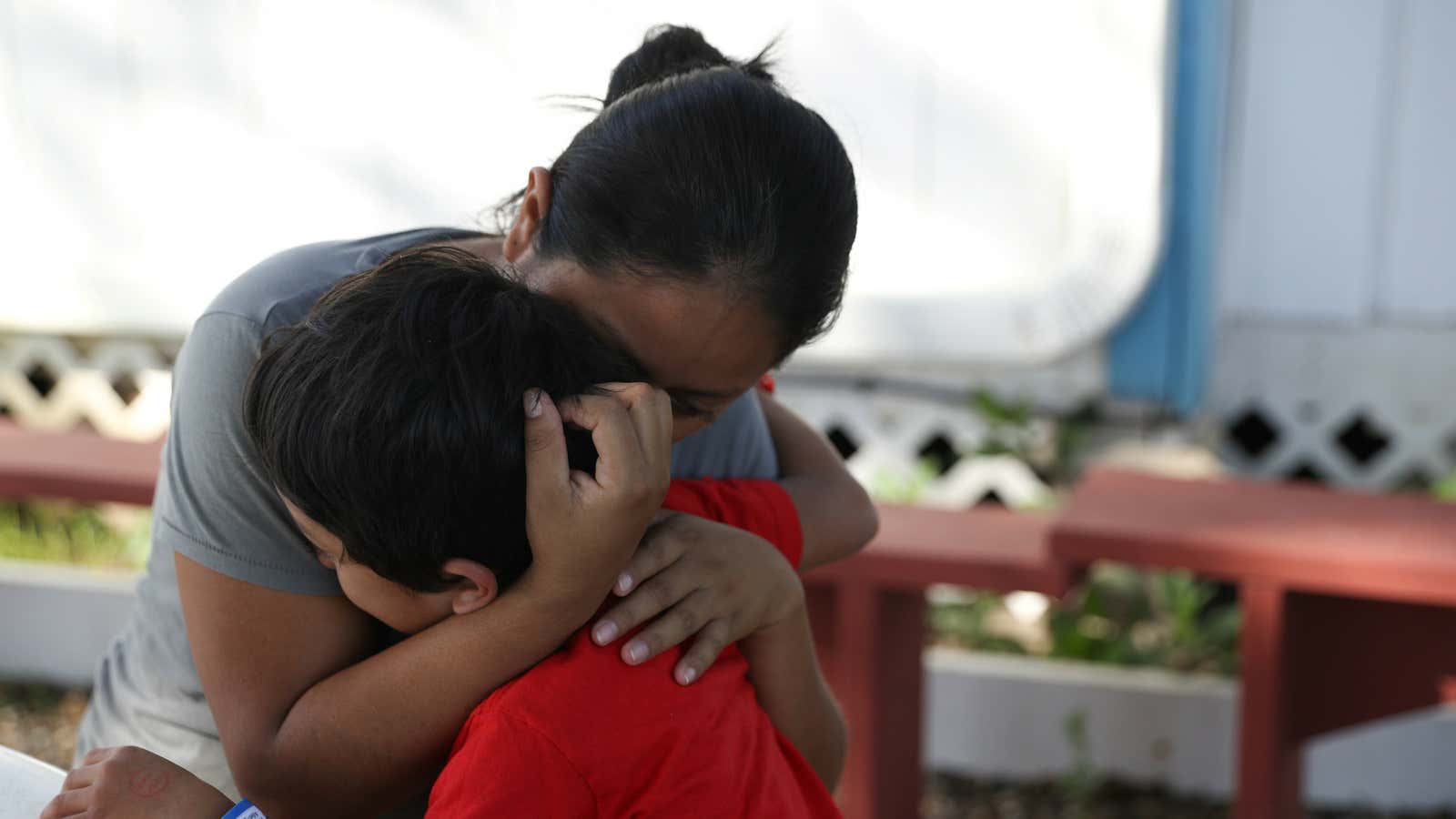Many parents live every day in a state of near-constant concern. Is my child eating enough? If she cries when I’m not there, will someone comfort her?
For the migrant families held in federal custody, many of whom were separated under Donald Trump’s now-altered “zero tolerance” policy, the answer appears to be a resounding “no.” The Texas Tribune reviewed more than 1,000 pages of court filings from 200 children and adults detained after seeking asylum at the border and uncovered harrowing stories of a 2-year-old girl left unattended, a mother who could not produce enough milk for her baby because of hunger, rotten sandwich meat, guards bullying a teenage boy, and migrants denied basic legal rights.
Denia M., a 20-year-old mother from Honduras, testified that she fled the country with Zoe, her one-year-old daughter, in an attempt to escape the gang violence that claimed her husband’s life. In detention, Zoe got diarrhea, but Denia was too afraid to ask for help. Hungry, she stopped producing enough milk for Zoe.
Manuel A., a 17-year-old from Honduras, fled due to the drug war, and reported that guards told him ““they don’t want stupid people like me here bothering their country.”
Katharine B., a 17-year-old from El Salvador, described meeting and caring for Bethany, a two-year old child who cries endlessly in her “cage.” When Katherine leaves her and later returns, Bethany needs changing and is emotionally distraught.
Federal officials declined to comment to the Tribune but referred the paper to a previous court document in which the chief accountability officer for Customs and Border Patrol, “said that based on his own interviews with children in federal custody, CBP continues to comply with legal requirements for kids’ treatment in those centers.”
Under Trump’s zero tolerance immigration policy, migrants were separated from their families at the border, with adults sent to be prosecuted for illegally crossing the border while children were sent to federally run shelters. On June 20, Trump issued an executive order rescinding the separation policy. But 2,342 children had already been forcibly separated from their parents. Although the deadline for reunification is July 26, the administration still lacks a coherent plan to bring the children back to their families. The Tribune is documenting the impact of these separations in a series called “Families Divided.”
Neuroscientists, psychologists and social workers have been vocal about the damage that the stress of separation can have on children’s physical, emotional and brain development. “Here we have taken away what science has said is the most potent protector of children in the face of any adversity—the stability of the parent-child relationship,” Jack Shonkoff, director of the Center on the Developing Child at Harvard University, told Quartz.
Taking children away from their parents is cruel in its own right. And the testimonies highlighted by the Tribune suggest that the treatment of children at the hands of the US government only further compounds their suffering.
